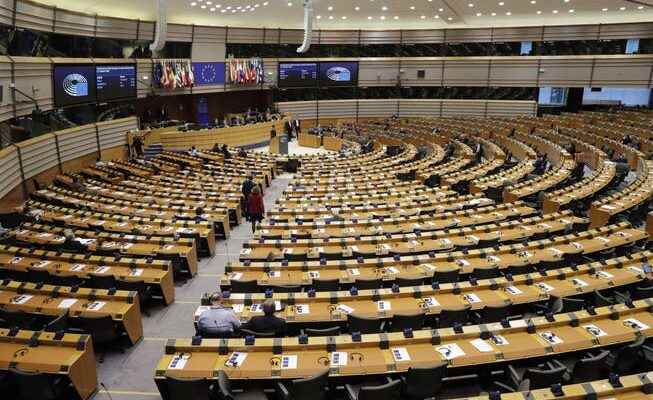The EU Commission is proposing an individualized system that the EU countries should use to get their budgets and in particular their debts under control. There would be stricter controls for that.
In 2020, during the pandemic, the EU Commission temporarily suspended debt reduction rules to allow countries to fully support their citizens.
Crisis after crisis grips Europe. Meanwhile, the high level of debt in EU countries such as Italy, Spain and France has receded into the background. But now the Commission has taken on the problem.
Italy is groaning under a heavy debt burden
At the end of 2021, Greece, Italy and Portugal had the highest mountain of debt compared to their economic strength (gross domestic product, GDP). However, if you also look at the absolute values, Rome’s mountain (2,678 billion euros) is one of the biggest problems for the euro zone.
However, the countries with the common currency undertook in 1992 (or when they joined the monetary union) not to let their debt grow to more than 60 percent of GDP. If this limit is exceeded, the mountain must be removed by one twentieth every year.
Italy would have to spend around 80 billion euros a year on debt reduction. That is more than the 70 billion euros that the country spent on education in 2020.
Accordingly, people in Rome have not been happy with these specifications for a long time. In addition, the Maastricht framework has become more and more complicated over the years and in response to the financial and sovereign debt crises.
Then in 2020, during the pandemic, the Commission temporarily suspended the rules to allow countries to fully support their citizens. Now the rules are supposed to come into force again in 2024.
The Commission intends to seize the opportunity and revise the rules beforehand. On Wednesday she presented a first statement of the situation.
The core problem remains unsolved
This allows three conclusions. Firstly, the revised budgetary targets are not really “simple”. Second, they give highly indebted countries like Italy, Spain and France more time to deleverage. And thirdly, the core problem remains unsolved.
Specifically, the countries should no longer all be lumped together. Rather, each country negotiates a four-year plan with the Commission. This contains a kind of upper limit for government spending, reforms and investments. The Commission and the Council of Member States check compliance with these plans on an annual basis. Deviations result in penalties.
Superficially, the Commission wants to reduce the high level of debt “realistically, gradually and permanently”. In this way, the unchanged targets stipulated in the EU treaties of spending surpluses of a maximum of three percent of GDP and a maximum debt of 60 percent of GDP are to be met or achieved.
In fact, however, the Commission is giving the states significantly more opportunities to delay debt reduction. Brussels wants to balance this with harsher consequences if the countries deviate from the promised path.
In order for the EU’s fiscal rules to work, however, what is needed above all is the political will in the states to put the budget in order and to respect the quality standards of the EU club, even if this requires painful measures. But that has been lacking in the past. It is questionable whether self-imposed goals will change that.
The Commission is hoping for an agreement among the member states as early as 2023. However, that will be difficult. Because the consensus between Berlin and Paris, which is usually necessary for such reforms, is already missing. In any case, the German Finance Minister Christian Lindner recently said that “Financial Times», bilateral agreements between countries and the Commission on debt reduction are «not wise».
